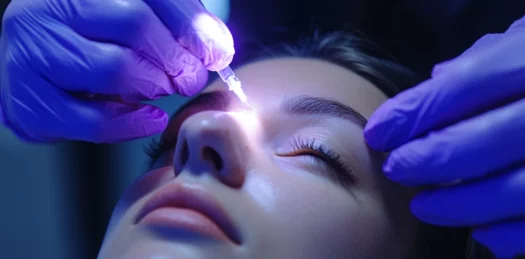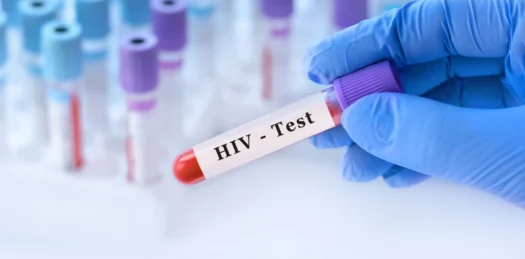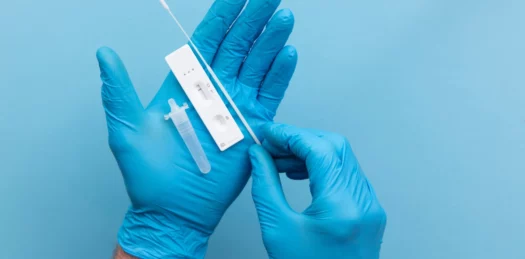The document MDCG 2021-4 Rev. 1, published by the Medical Device Coordination Group (MDCG), provides detailed guidelines on the transitional provisions for the certification of Class D in vitro diagnostic medical devices (IVDs) under Regulation (EU) 2017/746 (IVDR). Class D medical devices, being high-risk products, require a more complex conformity assessment process, involving expert panel consultations and participation of EU reference laboratories (EURL).
The purpose of this document is to support manufacturers and notified bodies in understanding and applying IVDR requirements during the transition period, i.e., before the full implementation of all regulatory mechanisms, such as the designation of reference laboratories. The guidelines are crucial for ensuring the proper implementation of IVDR and enabling a smooth transition from previous regulatory requirements to the new ones.
Conformity assessment procedure for class D IVD medical devices
According to Article 48 of the IVDR, Class D devices, which include tests of significant clinical importance, are subject to specific conformity assessment requirements. Manufacturers must submit applications to notified bodies, which are responsible for evaluating the device. For Class D devices, additional elements, such as performance testing, may be reviewed by expert panels or tested by designated EU reference laboratories (EURL).
The document emphasizes that notified bodies may begin the conformity assessment process for devices before expert panels are fully operational. However, certificates cannot be issued until the panel has provided its opinion, if required by the conformity assessment procedure.
Consultations with expert panels IVDR
The guidelines state that, in the certification process for Class D devices, when there are no Common Specifications (CS) or when it is the first certification of that type of device, notified bodies are required to consult with the relevant expert panels as per Article 106 of Regulation (EU) 2017/745. Expert panels must provide their opinions within 60 days, which corresponds to the timeframe for an EU reference laboratory to issue its opinion. The document also addresses when notified bodies should submit manufacturers’ performance evaluation reports to the expert panel, in compliance with IVDR requirements.
Role of EU Reference Laboratories (EURL)
The designation of EU reference laboratories plays a key role in the conformity assessment of Class D devices, particularly in batch testing and performance verification. According to Commission Implementing Regulation (EU) 2023/2713, from 1 October 2024, designated EURLs will be required to perform tasks such as batch testing and performance verification. The MDCG 2021-4 Rev. 1 document emphasizes that notified bodies must engage with appropriate EURLs in preparation for batch testing even before issuing a certificate.
In particular, according to Article 100(2) of the IVDR, reference laboratories will be responsible for batch testing and performance verification of Class D devices, which is crucial for ensuring the safety and compliance of these devices. The document also addresses the situation where devices are certified before the designation of EURLs and describes how obligations related to batch testing and performance verification will need to be adjusted once the laboratories are designated.
Designation of EU Reference Laboratories (EURL)
Designation from 1 October 2024 From 1 October 2024, Class D medical devices for which notified bodies have issued certificates under the IVDR and which fall within the scope of designated EURLs will need to undergo batch testing in accordance with the relevant provisions. The MDCG guidelines provide detailed descriptions of the necessary preparations for these tasks, such as signing contracts, shipping equipment, device samples, and installation and validation of equipment.
Batch testing cannot begin immediately on 1 October 2024, but notified bodies should be prepared to collaborate with EURLs to ensure all necessary organizational actions are completed. In the meantime, other testing or evidence may be requested in line with IVDR provisions to ensure proper batch verification.
Consequences for IVD manufacturers
Manufacturers of Class D devices must be aware of the upcoming changes and collaborate with notified bodies and EURLs to ensure compliance with the requirements. The guidelines highlight that manufacturers will need to adjust their production and control processes to meet the requirements for batch testing and performance verification, especially in cases where EURLs are designated after a device has been certified.
Conclusion
The MDCG 2021-4 Rev. 1 guidelines are a key document for manufacturers of Class D IVD devices and notified bodies responsible for conformity assessments under Regulation (EU) 2017/746 (IVDR). The changes introduced by this document provide clarity on procedures involving expert panel consultations and the involvement of EURLs in the certification process. As the date for the full implementation of designated reference laboratories approaches, manufacturers must prepare for new requirements that will affect the certification process for their devices.









